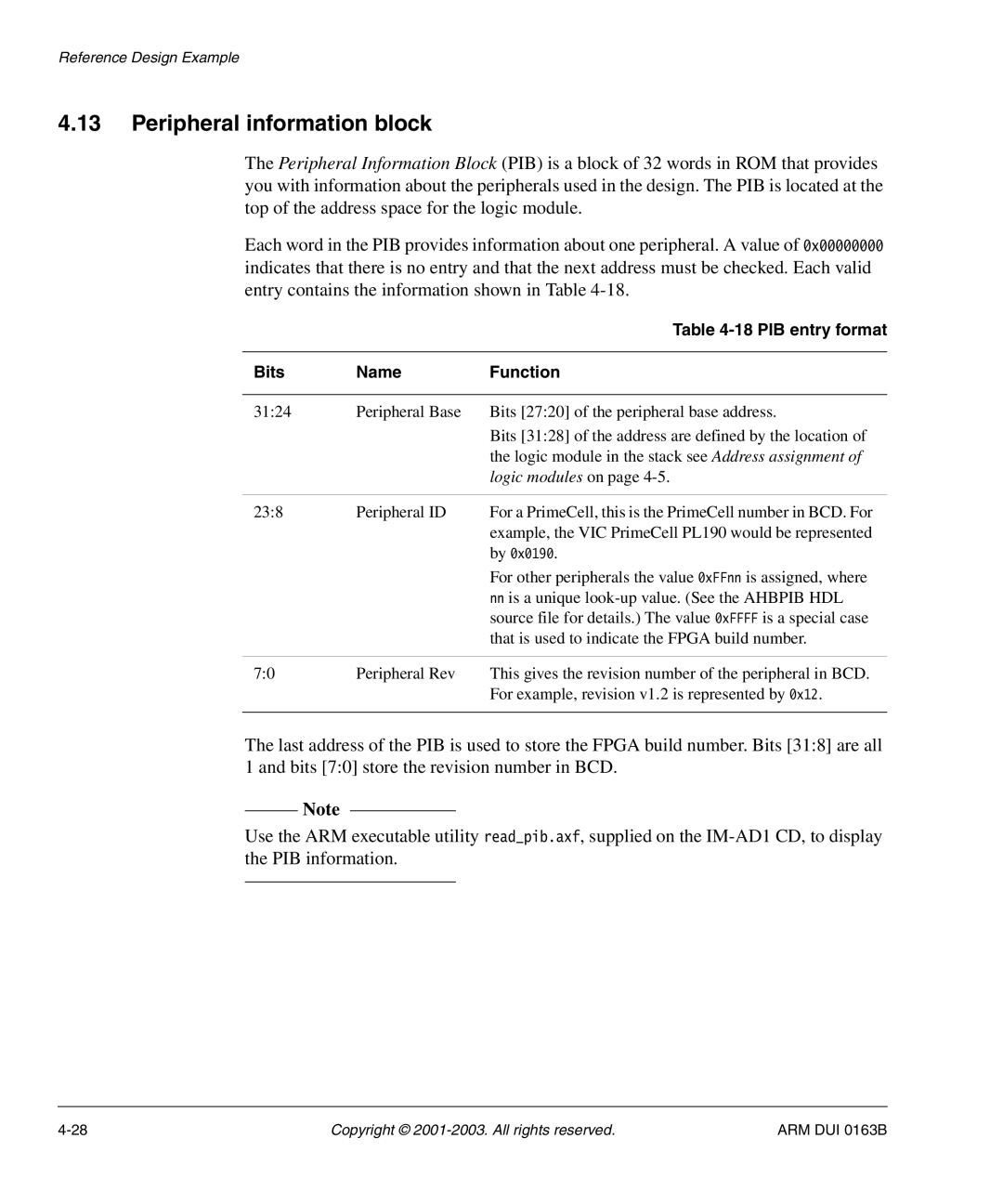
Reference Design Example
4.13Peripheral information block
The Peripheral Information Block (PIB) is a block of 32 words in ROM that provides you with information about the peripherals used in the design. The PIB is located at the top of the address space for the logic module.
Each word in the PIB provides information about one peripheral. A value of 0x00000000 indicates that there is no entry and that the next address must be checked. Each valid entry contains the information shown in Table
|
| Table |
|
|
|
Bits | Name | Function |
|
|
|
31:24 | Peripheral Base | Bits [27:20] of the peripheral base address. |
|
| Bits [31:28] of the address are defined by the location of |
|
| the logic module in the stack see Address assignment of |
|
| logic modules on page |
|
|
|
23:8 | Peripheral ID | For a PrimeCell, this is the PrimeCell number in BCD. For |
|
| example, the VIC PrimeCell PL190 would be represented |
|
| by 0x0190. |
|
| For other peripherals the value 0xFFnn is assigned, where |
|
| nn is a unique |
|
| source file for details.) The value 0xFFFF is a special case |
|
| that is used to indicate the FPGA build number. |
|
|
|
7:0 | Peripheral Rev | This gives the revision number of the peripheral in BCD. |
|
| For example, revision v1.2 is represented by 0x12. |
|
|
|
The last address of the PIB is used to store the FPGA build number. Bits [31:8] are all 1 and bits [7:0] store the revision number in BCD.
Note
Use the ARM executable utility read_pib.axf, supplied on the
Copyright © | ARM DUI 0163B |
